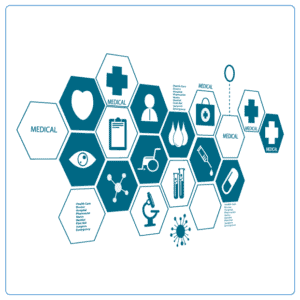Medical Device Risk Management
A course presented over 2 half-days, 6 half-day or 3 full-day by Bijan Elahi
- 2 half-day, 6 half-day or 3 full-day
- Available for Corporate Training only (In-person or online)
- Certificate upon completion
- Professional Development Credits
Get Started Today
Register your interest.
Let's Talk
Whether you have a question or are looking to find out more about our training options then please get in touch with us below.
- Summary
- Course Overview
- Course Outline
- Video
 Medical Devices Risk Management (MDRM) is a progressively more prominent topic in the medical device industry. Expectations by Regulatory bodies of medical device companies in producing quality, logical and defensible risk management files is rising. It is incumbent on the medical device manufacturers to convince the regulatory bodies that the benefits of a medical device outweigh its risks.
Medical Devices Risk Management (MDRM) is a progressively more prominent topic in the medical device industry. Expectations by Regulatory bodies of medical device companies in producing quality, logical and defensible risk management files is rising. It is incumbent on the medical device manufacturers to convince the regulatory bodies that the benefits of a medical device outweigh its risks.
This course teaches a disciplined systematic approach to the analysis, estimation, evaluation, and control of safety risks associated with medical devices. This method is explainable, logical and integrated. Application of formal risk management techniques can help predict and prevent serious harm to patients and losses to businesses.
This training course provides a comprehensive introduction to topics that are needed for successful management of safety risks of medical devices in conformance with the international standard ISO 14971. The scope of risk management includes both pre-market product development, and post-market risk management.
This course may be credited toward the maintenance of the Project Management Institute (PMI) certifications. Suggested PMI Talent Triangle® PDU allocation:
- Medical Device Risk Management 3-Day
- Ways of Working – 20
- Business Acumen – 1
- Medical Device Risk Management 4 Half-Day
- Ways of Working – 13
- Business Acumen – 1
- Medical Device Risk Management 2 Half-Day
- Ways of Working – 6
- Business Acumen – 1
The course commences with the fundamentals of medical devices risk management, then builds upon the fundamentals, and teaches a practical, sensible and efficient way of performing medical devices risk management. The course includes multiple quizzes to deepen the learning, and create an engaging learning experience.
Topics such as medical device software risk management, cybersecurity are also addressed in this course.
Key Learning Objectives
At the conclusion of this course, participants are expected to have developed a sound working knowledge of medical devices risk management in compliance with ISO 14971.
Training Methods and Materials
Please note: it is the course participant’s responsibility to purchase the book prior to course participation.
Some Key Questions
- What is the difference between cause, hazard, hazardous situation and harm?
- How can we establish that risks of a medical device are reduced to as low as possible?
- How can we show that the benefits of a medical device outweigh its risks?
- How do we manage software risks?
- How does risk management inform and influence biological evaluation of medical devices?
- What is the connection between usability engineering and safety risk management?
- How should we monitor production and post-production medical device information?
- How should knowledge gained from production and post-production be rolled back into the medical devices risk management process?
- How should medical devices risk management influence verification testing?
- What is the difference between risk control and mitigation?
- How do we determine when to stop reducing risks?
- What factors contribute to successful analysis of hazards?
Who Should Attend this Course?
- Practitioners of medical devices risk management– including product risk managers, systems engineers, design engineers, manufacturing engineers, quality engineers, usability engineers.
- Evaluators of medical devices risk management– including quality assurance, management, regulatory staff.
- People with a need for a general understanding of medical devices risk management– including clinical, marketing, packaging, toxicology, management.
Participants will not need prior knowledge or experience with medical device risk management, but experience in medical device development would be an advantage.
This Risk Management for Medical Devices course is designed for professionals who are engaged in medical devices development and risk management, or who need to quickly come up to speed on the theory and methods of medical device risk management, and be able to produce the required documentation to support successful submission and approval of medical devices by Regulatory Agencies.
The course will also be of value to those who will not perform medical devices risk management but are required to review and approve medical devices risk management artifacts.
Do you Offer Tailoring of this Course?
Yes. All courses are tailored informally verbally in delivery by selecting, where possible, examples matched to the domains of interest to the class. We can also work with you to design a formally customized curriculum for the development of your people. We have done so for many client companies, and we would love to work with you to this end. We always suggest that a client takes the corresponding standard course prior to any customization. For systems engineering, this is because systems engineering is the problem-independent and solution technology-independent principles and supporting methods for the engineering of systems, based on systems thinking. So the objectives of customization need to be very clear and focused on adding further value. In practice, customization, if performed, usually becomes the replacement of examples and possibly the main workshop system with domain-specific equivalents. Substitution of the workshop system usually involves substantial redevelopment of courseware. Out of necessity, formal tailoring of courseware is performed on a fee basis.
Course Availability
This course is offered online at the scheduled dates. It is also available for on-site delivery at client-provided facilities. The on-site course can be augmented with hands-on workshops to practice the techniques of risk management.
1. The Value Proposition for World Class Medical Device Risk Management
Proper risk management is a value-adding activity to medical device product development. Efficient, intelligent, and effective risk management ensures smooth product approvals, reduced field corrective actions, and achieves significant cost savings to the business.
2. Introduction to Medical Device Risk Management
- Why do we need to do medical device risk management?
- The benefits of medical device risk management
- Safety as an emergent system property
- History and origins of risk management
- Safety constraints
- Cybersecurity and safety risk management
- Language of risk management
- Hazard theory
- Hazard Taxonomy
- How to distinguish subtle concepts in risk management
- Quiz
3. Medical Device Risk Management Standards
- ISO 14971 – the central standard in medical device risk management
- Requirements of ISO 14971
- Other related safety standards: IEC 60601-1, IEC 62366, IEC 62304, ISO 10993
4. Medical Device Risk Management as a Value-Added Activity
- Risk management contribution to the various lifecycles in product development
5. Medical Device Risk Management Activities and Artifacts
- Risk management plan
- Risk management report
- RM file
- RM process
- Risk analysis
6. Foundations for Medical Device Risk Management
- System types
- Clinical Hazards List (CHL)
- What it is
- How to create it
- Risk estimation
- Classic and advanced methods
- Harms Assessment List (HAL)
- What it is
- How to create it
- Quiz
7. Medical Device Risk Management Tools and techniques
- Fault Tree Analysis (FTA)
- Preliminary Hazard Analysis
- Failure Modes and Effects Analysis (FMEA/FMECA)
- Is FMEA risk management?
- Relationship between FMEA and FTA
- Domains of Severity, Occurrence and Detectability
- Risk management scaling via hierarchical-multi-level FMEA
- FMEA cascade
- Usability Engineering and risk management
- How to distinguish reasonably foreseeable misuse
8. Software Medical Device Risk Management
- Introduction
- Software failure model
- Language of SW risk management
- Contribution of software to system hazards
- Software risk
9. Medical Device Risk Assessment
- Risk Assessment and Control Table (RACT)
- Risk integration
- RACT workflow
- P1 and P2
- Risk controls
- Safe by design
- Protective Measures
- Information for safety
- Risk controls end-point logic
- Verification of risk controls
- Residual risk
- Traceability
10. Benefit-Risk Analysis
- FDA guidance
- Criteria for benefit-risk analysis
- FDA decision-making factors
11. Post-market Medical Device Risk Management
- Listening systems
- Surveillance
- Complaint handling
12. In Closing
- Common mistakes in medical device risk management
- Tips and wisdom for success.
Best Practices in Risk Management
PPI Course Presenter and Principal Consultant Bijan Elahi, an expert on a world scale in medical device risk management, shares his wisdom in medical device risk management in this interview.
Bijan Elahi is also the author and presenter of PPI’s Medical Device Risk Management training course.
Let's Talk
Whether you have a question or are looking to find out more about our training options then please get in touch with us below.
Featured Course Reviews

Risk Management for Safety-Critical Systems is an excellent practical course on risk management with a focus on medical technology. In addition to learning the fundamentals of risk management, in this course I learned a complete methodology for managing risk during the full product life cycle.
Participant, Netherlands
Philips

I am a candidate for the professional doctorate degree in Health Systems Design (PDEng) and took Bijan Elahi’s course on Risk Management for Medical Devices. During this very comprehensive course, Bijan not only gave us extensive insights to the Risk Management process (ISO14971), but also shared a great deal of useful and practical experiences in the industry.
Participant, Netherlands
Philips

This thorough and complete training unlocked many answers to questions I had when I was doing product development in the medical device industry. For example, why perform risk management? How exactly should we perform risk management? What happens in real-life situations? What does FDA do during audits, for example?, etc. I really enjoyed Bijan’s lectures and presentation, especially the interactive quizzes in class. They helped me reflect and absorb what I was learning.
Participant, Netherlands
Philips

Bijan’s expertise in the subject matter is unsurpassed and he explained everything in an easy-to-understand manner. He was very patient, inspiring, organized, passionate and open to suggestions. I really enjoyed this course and gained much professional knowledge. This is the most useful course I have taken in the PDEng.
Participant, Netherlands
Philips

Having vast industrial experience, Bijan also was able to use real life examples to easily relate the importance of risk management to product development and the do’s and don’ts. This course has given me the knowledge and expertise to practise risk management of medical devices in my own projects. This is one of the best and most relevant industrial courses that I have ever taken.
Participant, Netherlands
Philips

Thank you for the two days of FMEA and Risk training! The course material was excellent, the class style was engaging, and you are an insightful and great teacher. Our team, business, and devices will all benefit from this valuable experience.
Participant, USA
Medtronic
More Courses For You
CTI SE-ZERT®
Achieve SE-ZERT Certification
Engineering Successful Infrastructure Systems
Improve infrastructure projects
INCOSE SEP Exam Preparation Course
Achieve INCOSE SEP Certification
Model-Based Systems Engineering (MBSE) Foundations
Organize your information in standard models for power & reuse
Requirements, OCD & CONOPS in Military Capability Development
Develop capability successfully
Systems Engineering
Fulfilling the promise of innovation on demand
Systems Engineering Executive Overview
ROI of SE practices
Systems Engineering Management
Achieve SE & Program/Project Management alignment
Systems Engineering Overview
Develop system solutions
